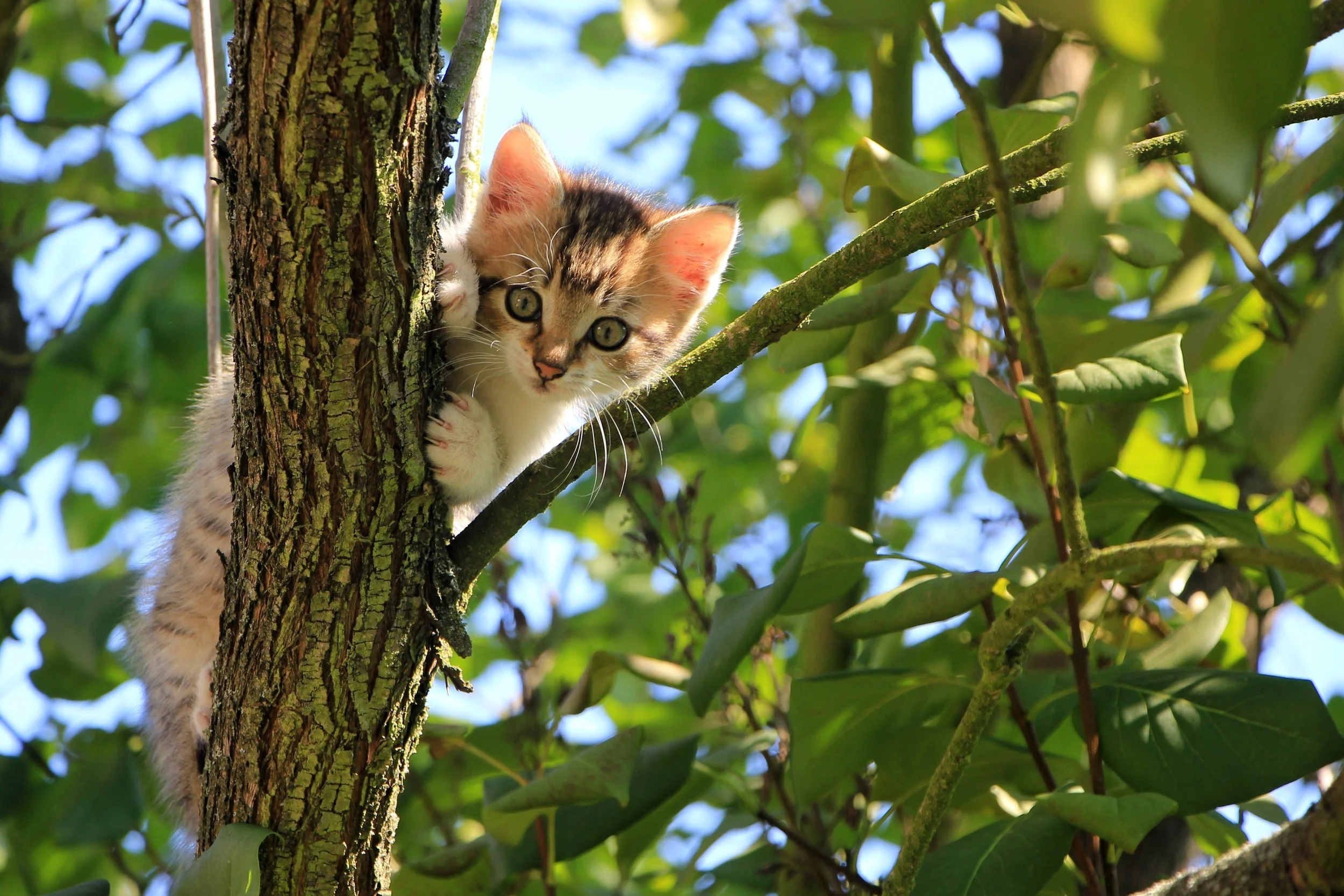Kittens can be very cute, playful, active and loving pets. Congratulations if you have just added a kitten to your family. With an average lifespan between 13-17 years, its important to realise owning a kitten is a long-term commitment that comes with both joy and responsibility. Here are a few important tips on caring for your new kitten.
Contact your local council
Before you bring your kitten home, get in touch with your local council to ask about their regulations regarding areas such as night curfews, compulsory containment within your property, registration, micro chipping and de-sexing. Each council has different laws so it is important to get in touch with the council in your local area for full details.
Find a local vet
Provide a healthy start for your kitten by finding a local vet and booking a health check. Our vets will not only check your kitten’s general health but will also discuss a preventative healthcare routine including vaccinations, parasite control, micro chipping and de-sexing options. Our vets can also inform you about early signs of illness to look out for.
It is also a great time to ask about any questions you may have such as nutrition, playtime and obedience.
Diet and nutrition
Kittens have lots of energy and they grow up fast, typically reaching their full adult height by 12 months. Kittens have special nutritional requirements and should be fed a complete and balanced diet that caters for this specific stage in their life. There is wide a range of kitten food products available that are specifically formulated for your kittens needs. Our vets can provide you with the best advice about what diet is most suitable for your kitten.
Establish a toilet routine
Learning how to use a litter tray is an important part of training your new kitten. The litter tray should be placed in a quiet, private location for your kitten to use when they need to go to the toilet. You will need at least two litter trays in your house per cat. Place your kitten in the litter tray when they are most likely to use it such as:
When you wake up
Just before bedtime
After your kitten eats or drinks water
When you kitten wakes from a nap
It is also important to keep the litter tray clean, as many cats will not use a dirty litter tray. Remove any faeces daily and change the litter regularly. Always wash your hands after cleaning the litter tray. Remember to use positive reinforcement by rewarding your kitten when they use the litter tray. Rewards can include praise, treats, a toy or a pat. Positive reinforcement also means refraining from punishing when they have accidents.
Enjoy playtime together
Playtime is an important bonding experience between you and your kitten. Kittens are very playful and energetic and love to use up their energy interacting with their owner or chasing a cat toy. Try to spend some time each day playing with your kitten. Leave some toys available for your cat to play with independently and keep some aside for your own playtime together to keep it interesting and retain their novelty. During playtime teach them to play gently, playtime should end if they scratch hard or bite.
Establish a grooming routine
Regular grooming is an important part of general cat care, particularly for those with medium to long hair. Starting early, when they are a kitten, will help them adjust and establish a regular routine early on. Grooming should always be comfortable for your kitten. Be gentle and reward your cat for allowing you to groom them. This way they will associate grooming as a positive experience, making it easier for both of you.
Teach obedience
Setting ground rules early on can help prevent your kitten from developing unwanted habits. Kittens are naturally very playful which can sometimes lead to misbehaviour. Ensure you kitten has appropriate cat toys to play with to act as a diversion and keep them stimulated. They also instinctively need to scratch things to keep their nails in good condition. Provide a scratching pole or mat to help prevent your kitten from scratching your furniture. If they do starting scratching your furniture, place protective material over the area and ensure a scratching pole or mat is placed nearby to divert their attention.
Avoid playing rough with your kitten. If at any time during general play your kitten scratches or bites hard, end playtime to teach them that they don’t receive any attention for undesired behaviours. It’s important to keep it positive. Positive reinforcement such as small treats, praise or a pat has proven to be vastly more effective than punishment.
Be sociable
Just like obedience training, proactive socialisation is important for your kitten. The experiences that your kitten has early on can influence and shape their behaviour well into the future.
Socialising your kitten must be done in a safe and positive environment. Consider trying some of these socialisation techniques:
Pat and play with your kitten frequently
Introduce your kitten to cat toys and scratching poles or mats
Allow your kitten to experience different walking surfaces such as tiles, carpet and floor boards.
Have friends or family over to play with your kitten. Don’t allow your kitten to bite or scratch during play.
Take your kitten on car rides to get them used to their carrier. Place some comfortable bedding and treats in the carrier to make it an enjoyable place to be.
Expose your kitten to other cats and kittens. Its important to make sure that the other cats and kittens are friendly, healthy and up to date with their vaccinations.










